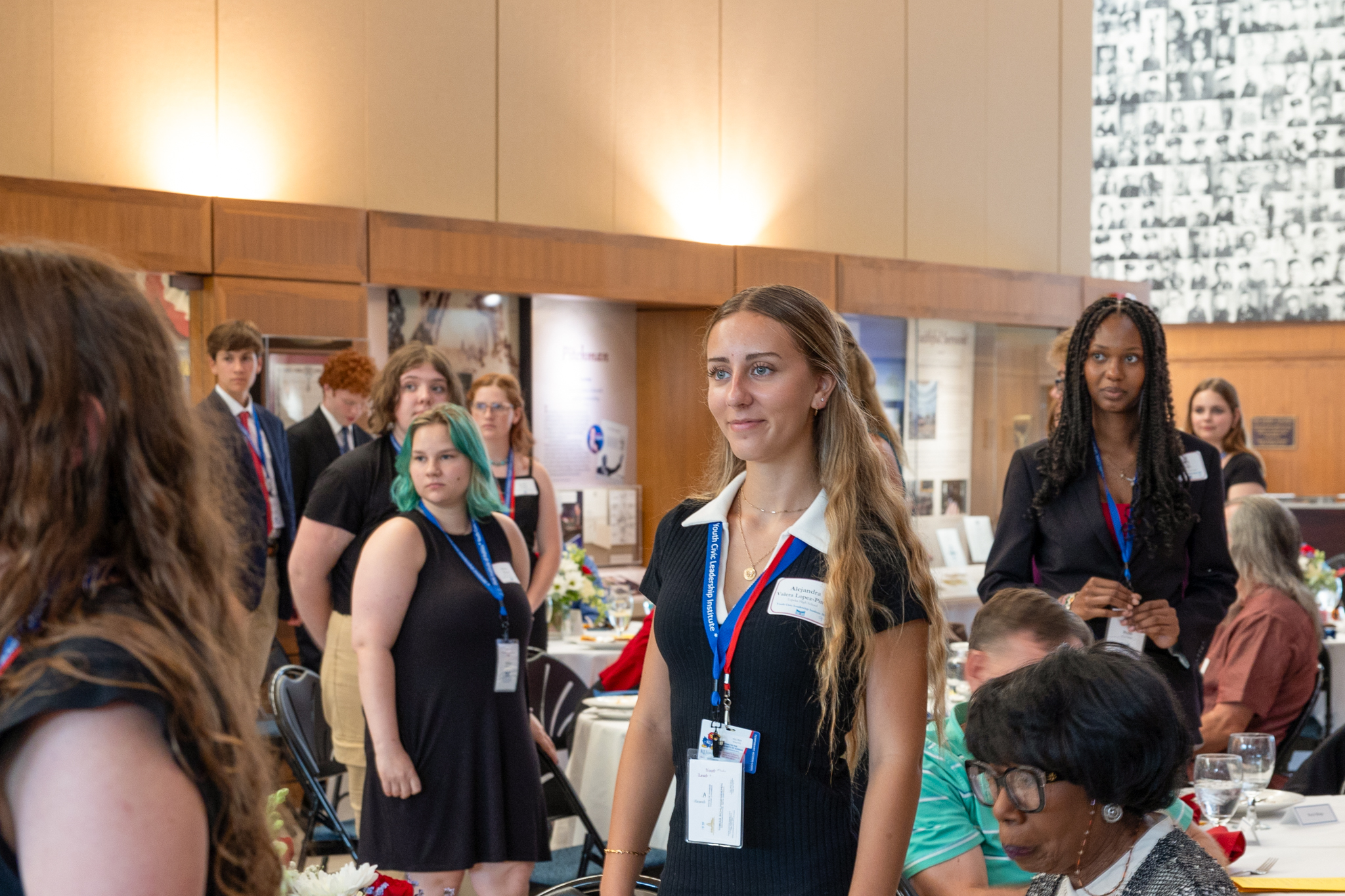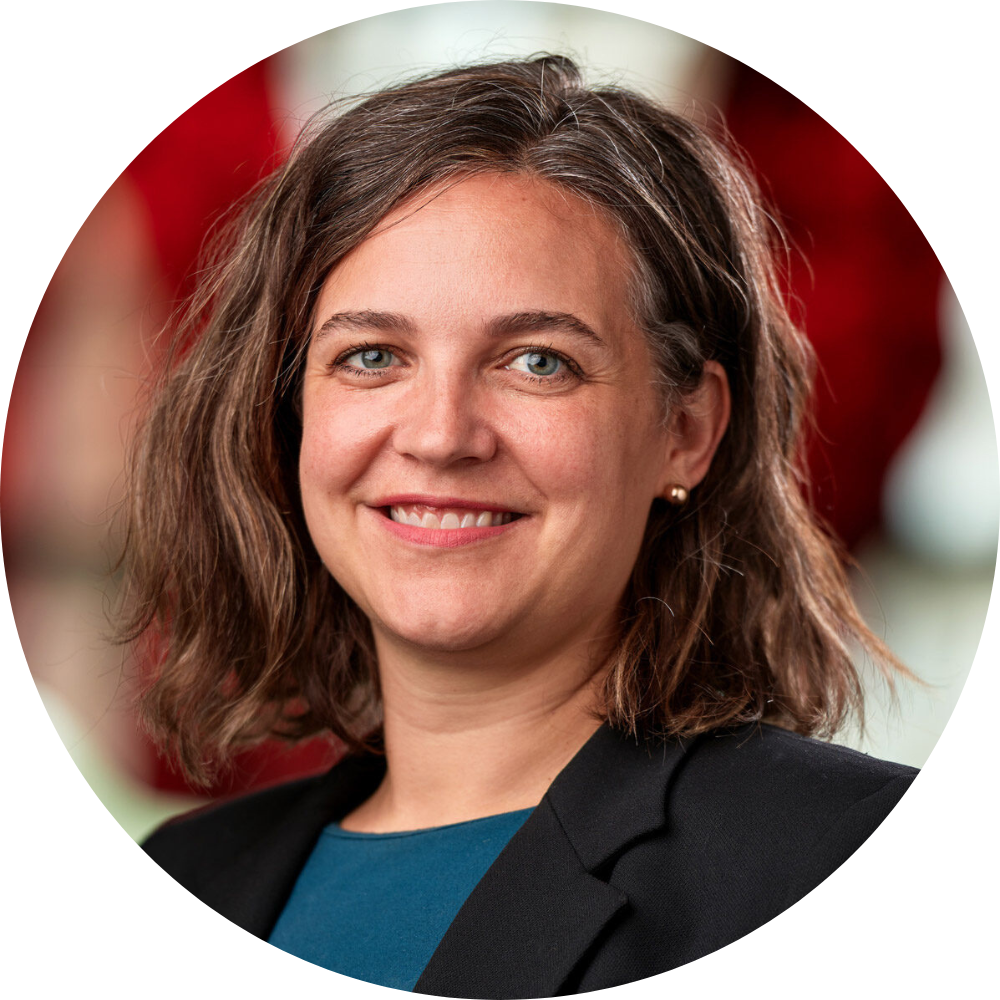We Can Build A Better Political Culture
July 15, 2024 - Features
by Audrey Coleman | Director, Dole Institute of Politics

Rising Kansas high school seniors stand to be recognized at the annual Youth Civic Leadership Institute Reception & Banquet.
Something went horribly wrong this past weekend at the former President’s campaign rally.
It was shocking but unfortunately not surprising. The polarizing rhetoric of the past decade has managed to reach new levels of distrust and animosity as this rerun campaign season closes in on its final four months.
Just the day before, as the Dole Institute concluded the 19th convening of our annual Youth Civic Leadership Institute, we celebrated over 40 high school seniors from across the state of Kansas whose earnest dedication to service and bipartisan political engagement set the bar high for the rest of us.
That day, things felt like they could, in fact, go very right.
We owe it to ourselves and our country’s young people to take responsibility for today’s self-destructive political culture. It’s not true to claim the situation is out of control, as long as we have the liberty to determine what we say, how we act, what information we choose to consume, what messages we spread online, where our political contributions are directed – and, of course, who gets our vote up and down the ballot.
Earlier last week, in introducing Senator Dole’s story to our YCLI students, I shared an essay he wrote in the early 1950s which described his path to physical rehabilitation after suffering grave and permanent war wounds in the Italian theatre of WWII. Having no other choice than to cultivate personal resilience in the face of long odds, in closing he “gave thanks to God for this opportunity which was denied the many who made the supreme sacrifice.”
In his own youth, Dole experienced first-hand the disastrous result of unfettered political animus; likewise, this battlefield experience shared with millions of other men informed their collective understanding that political disagreements should remain just that.
At this point, it’s perhaps too much to hope that this second (or third- or fourth-) hand knowledge passed on from the Greatest Generation will keep our destructive political impulses at bay.
But let Dole’s own particularly American variety of indefatigable will and sense of duty to the fallen serve as inspiration for the leadership we need—and the leaders we need to be—today and in the future.
It’s not a mystery as to how we arrive at the precipice of political destruction.
We also can’t claim that we don’t know the way back, and we should be thankful we are afforded this opportunity to get there.

Audrey Coleman is the Director of the Robert J. Dole Institute of Politics, where she has held leadership roles since 2012. Formerly the Archivist to Senator Bob Dole, Audrey led months-long commemorative efforts to honor Senator Dole’s 100th Birthday and the 20th Anniversary of the Dole Institute. In her role, Audrey cultivates transformative program partnerships that impact audiences and engage institutions across the region and the nation. Audrey holds graduate and undergraduate degrees from the University of Kansas, where she was a member of the Phi Beta Kappa Honors Society.
About the Dole Institute
The Robert J. Dole Institute of Politics, a vibrant forum for civil discourse, civic engagement, and idea exchange across the political spectrum, features historical archives, exhibits, and public programs for all ages. Inspired by the public service of native Kansan, veteran, legislator, and statesman Senator Bob Dole and his wife Senator Elizabeth Dole, visitor galleries feature changing exhibits, the Kansas Veterans Virtual Memory Wall, architectural-scale stained glass American flag, and September 11 memorial.
The Dole Institute is committed to universal accessibility in all programs and resources. We are in the process of making all of our web projects fully accessible. An accessible version of the material represented on this site will be made available upon request. Please contact us at doleinstitute@ku.edu to request the material be made available in an accessible format, or for general assistance.